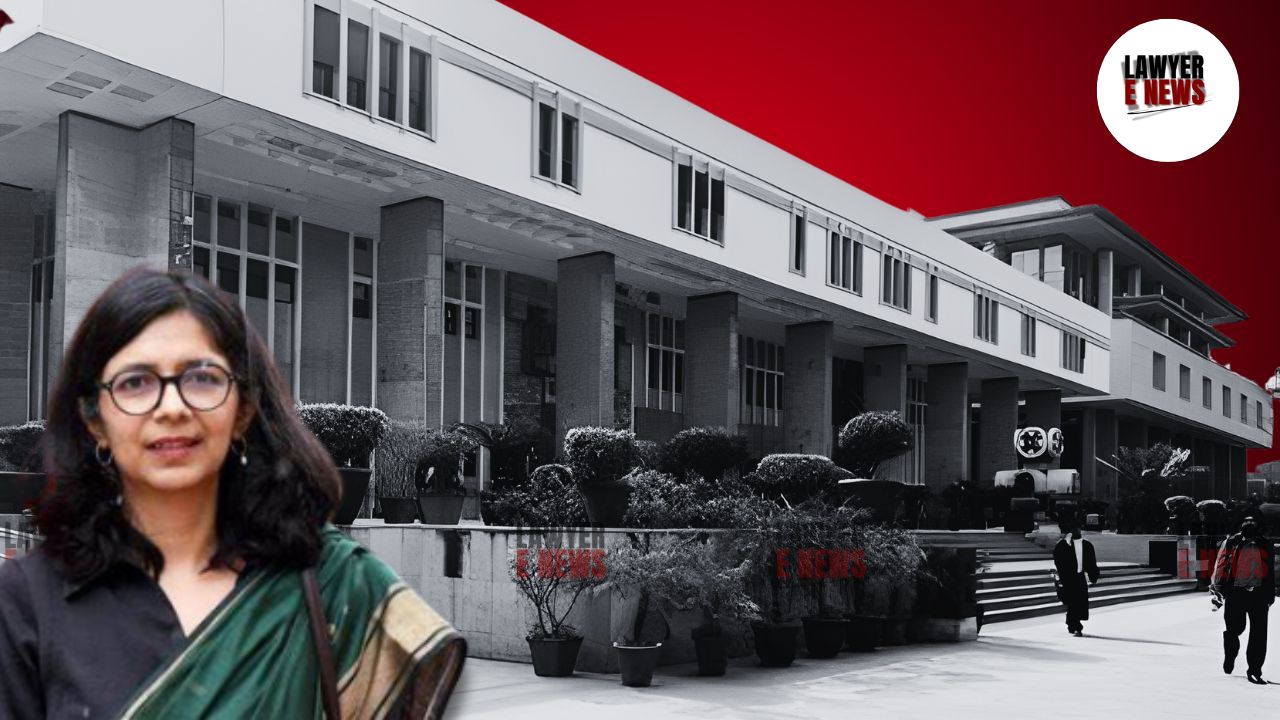-
by Admin
15 February 2026 5:35 AM



Delhi High Court dismissed petitions filed by Swati Maliwal, the former Chairperson of the Delhi Commission for Women (DCW), and others challenging the trial court’s order framing charges under Section 120B of the Indian Penal Code (IPC) and Sections 13(1)(d)/13(2) of the Prevention of Corruption Act (PC Act). The case centered around alleged illegal appointments made during Maliwal’s tenure in DCW, where individuals with links to the Aam Aadmi Party (AAP) were appointed without proper procedures. The Court held that there was prima facie evidence to proceed with charges of criminal misconduct and conspiracy.
The case arose from a complaint filed in 2016, alleging that during Swati Maliwal’s tenure as Chairperson of DCW, 87 individuals were appointed against a sanctioned strength of 26 posts, without following proper procedures such as publishing vacancies or conducting transparent recruitment. Some appointees were allegedly associated with AAP. A First Information Report (FIR) was registered, and a chargesheet was filed following an investigation by the Anti-Corruption Bureau (ACB). The trial court framed charges of criminal conspiracy and misconduct, which were challenged by the petitioners in the High Court.
Alleged Abuse of Official Position: The petitioners argued that there was no personal pecuniary advantage gained by the accused, but the Court clarified that under Section 13(1)(d)(ii) of the PC Act, it is sufficient if a public servant abuses their position to benefit another person.
Conspiracy under Section 120B IPC: The accused claimed no conspiracy existed, but the Court found that unanimous decisions made in DCW’s meetings regarding appointments and remuneration enhancements supported the existence of a conspiracy.
Autonomy of DCW: The petitioners contended that DCW had the autonomy to make short-term appointments. The Court, however, held that DCW was not fully autonomous and was required to follow the General Financial Rules (GFR) and government guidelines. Failure to do so raised suspicion of misconduct.
Framing of Charges: The High Court upheld the trial court's decision to frame charges under Section 120B of the IPC and Sections 13(1)(d)/13(2) of the PC Act. The Court noted that the arbitrary appointments of individuals, many of whom were associated with AAP, without following due process, created a strong suspicion of abuse of position.
Court's Interpretation of Corruption: The Court observed that even though no direct pecuniary advantage was gained by the accused, promoting the interests of associates by abusing a public office constituted corruption under the PC Act. The Court referred to the Supreme Court’s ruling in Neera Yadav v. CBI, emphasizing that nepotism and favoritism amount to a form of corruption.
The Delhi High Court’s ruling affirmed that there was prima facie evidence of criminal misconduct and conspiracy by Swati Maliwal and other DCW officials. By rejecting the petitioners' arguments on the autonomy of DCW and the absence of personal pecuniary gain, the Court underscored the broader interpretation of corruption under the PC Act, particularly focusing on abuse of official position to benefit others. The trial will now proceed based on the charges framed.
Date of Decision: September 20, 2024
Swati Maliwal v. State
